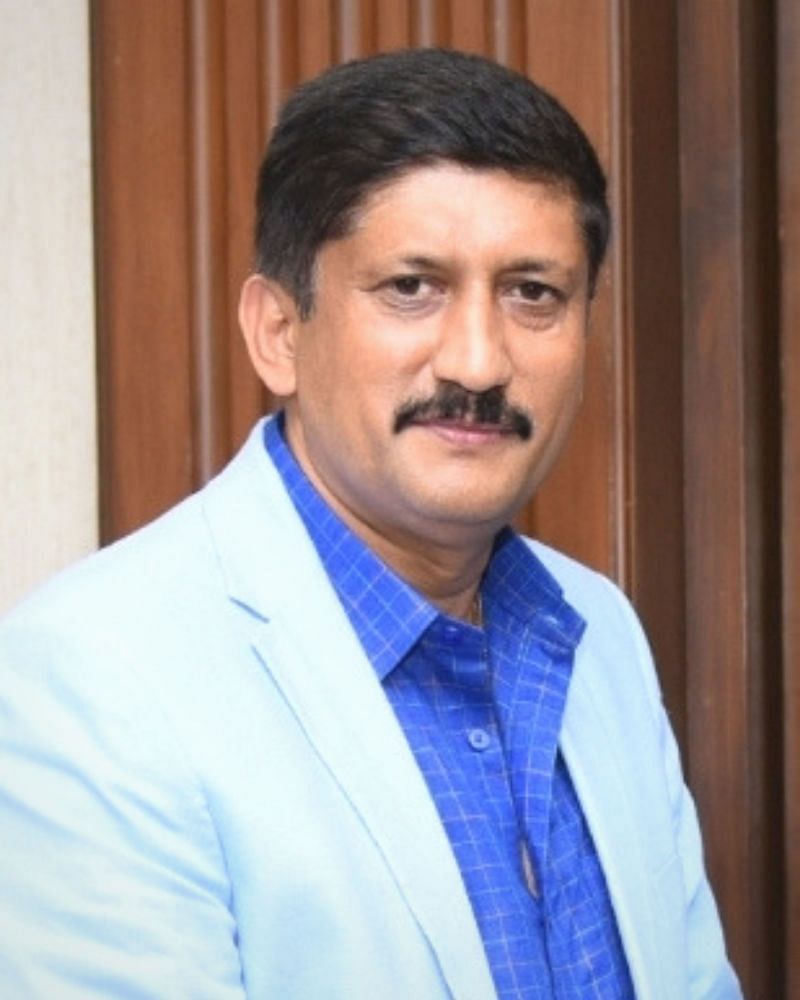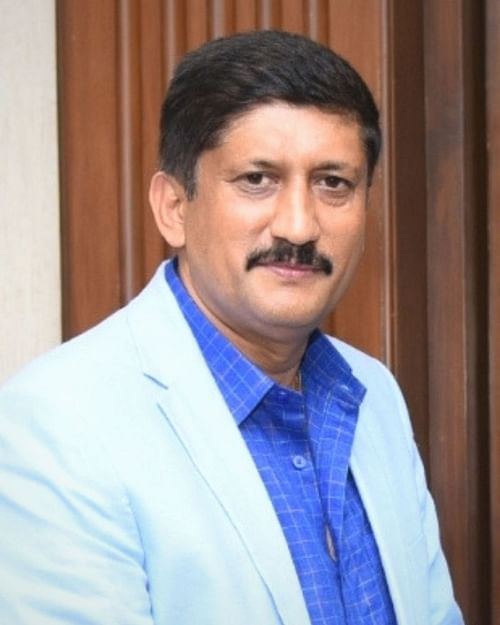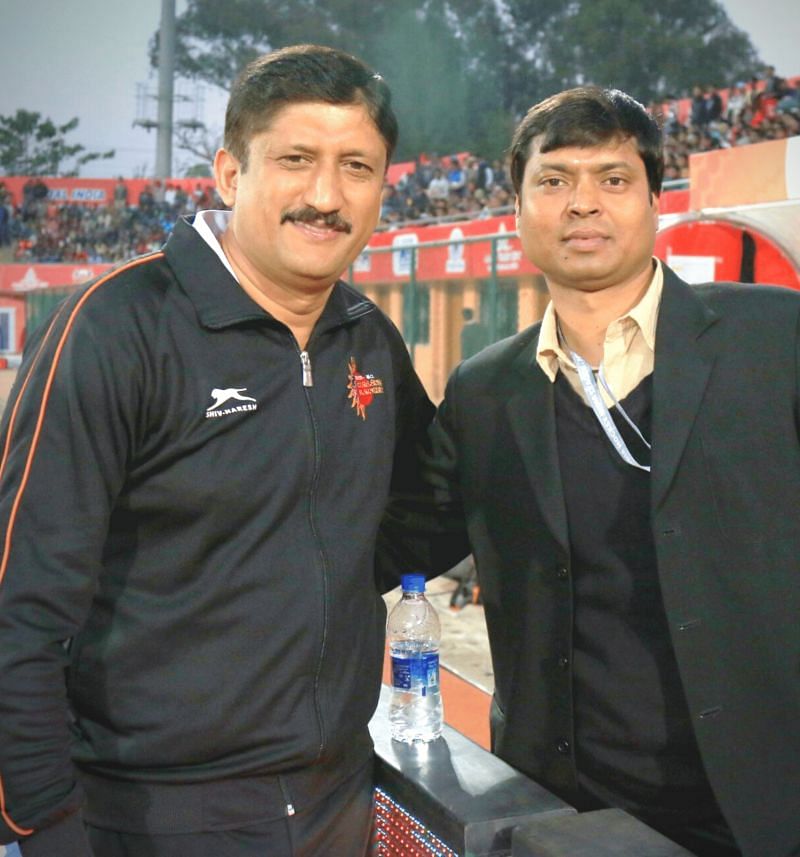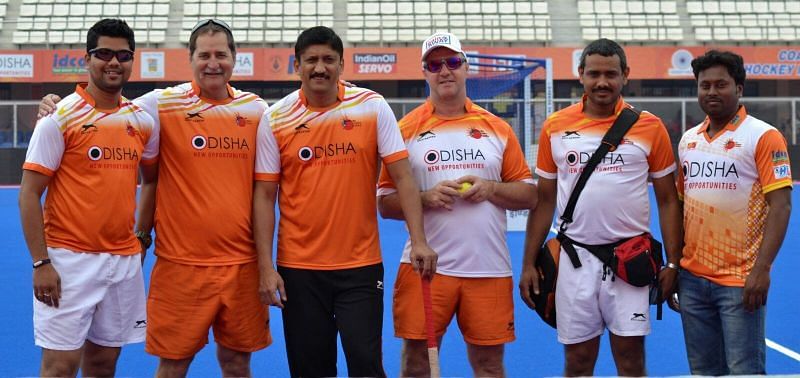
PR Sreejesh is experienced enough to handle pressure, says former Indian hockey goalkeeper and Olympian Dr. AB Subbaiah

Soon after Graham Reid became the coach of the Indian hockey team, we saw a change in the playing style of goalkeepers. Previous coaches didn’t really take the pain of putting the reserve goalkeeper on the pitch unless the team was winning the match single-handedly.
However, ever since Reid took over as head coach, he has made both P.R. Sreejesh and Krishan Bahadur Pathak play quarter by quarter, with Pathak sometimes getting the nod to play in the first quarter ahead of Sreejesh.
By doing so, Reid was definitely preparing Pathak for the future by giving him ample game-time as this will be Sreejesh’s third Olympics, and someone has to fill his boots after he retires. The 35-year-old custodian had once said:
“Goalkeepers are like wine, which gets tastier when kept longer.”
Sreejesh has been selected as the lone goalkeeper for the Olympics, which means that he will have to play all four quarters without Pathak's support.
To understand the psychology of goalkeepers and if it would have any impact on Sreejesh, Sportskeeda had an exclusive chat with former Indian hockey captain, goalkeeper and Olympian – Dr. AB Subbaiah.

"Olympics consists of numerous games and not only hockey. We saw there were 18 players in each team for the Hockey World Cup, but in any major tournament like the Olympics or Commonwealth Games, there is usually a cut-down in the number of players because of logistical issues. So, FIH & IOC only allows a certain number of players to stay with the team," Subbaiah said when asked about the Indian hockey team's squad size for the Olympics.
There is not only a decrease in the number of team players, but there are also restrictions on the number of staff.
Subbaiah said that when he played for the Indian hockey team, there used to be only three substitutions allowed, for which a team size of 16 wasn’t an issue.
But now, with rolling substitutions allowed, teams need more players on the bench who can get on the field anytime for an effective and equal contribution in the match.
Also Read: Dilip Tirkey: Debutants have to step up if the Indian Men's Hockey team wants a podium finish at Tokyo Olympics 2020
Could the Indian hockey team have taken 2 goalkeepers in a squad of 16?
Asked if the Indian hockey team could have afforded to take two goalkeepers to the Olympics, Subbaiah said:
"Teams can have two goalkeepers but I don’t think any team would ever do that, because every team wants to take the maximum advantage of the rolling substitutions. No one would want to have a reserve goalkeeper on the bench who can’t play the entire match unless the main goalkeeper is injured. So, it’s a definite choice for every team to have only one goalkeeper."
Also Read: Why do the Indian Hockey teams have only one goalkeeper for Tokyo Olympics 2020?
When asked if there would be any added pressure on Sreejesh, Subbaiah, a two-time Olympian himself, stated:
“Sreejesh is a very experienced goalkeeper. This will be his third Olympics. During practice sessions, a goalkeeper plays on for 3-4 hours at a stretch, and even now as the squad has been announced, Sreejesh would be having the maximum game time in practice matches and sessions. So, seeing his experience, consistency and calmness on the pitch, I really don’t think this should have an impact on Sreejesh to play the whole Olympics alone.”
Subbiah appreciated Australian coach Graham Reid for giving Pathak enough game-time in big matches like the World Cup and FIH Pro League.
This would help him perform to his best if he gets a chance during Tokyo Olympics 2020 in any case Sreejesh gets injured.
Subbaiah feels that the role of a goalkeeper in a tournament like the Olympics is much bigger than that of a normal tournament.
Being the last line of defense, they can see the whole field, including all the 21 players and can change the complete scenario of the game with their understanding.

Recollecting his memories from the 1996 Atlanta Olympics, where the Indian hockey team lost to Argentina, the former international goalkeeper said:
“We missed 7-8 penalty corners, while they just got one and converted it, that too on a rebound. So, the role of penalty corner specialists would also be equally important as the goalkeeper.”
Subbaiah thinks India is placed in a relatively easier pool and is optimistic about the team’s qualification into the quarters.
He also opined that if Indian hockey players play to their full potential, they can bring a medal back home after 41 years.